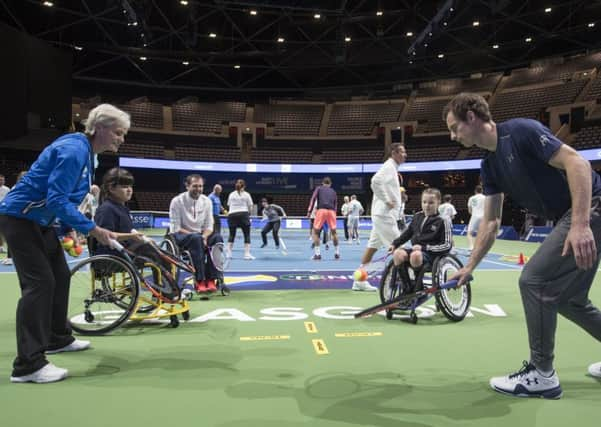Fighting spirit is an essential strength to develop in kids


But it is that fighting spirit which ultimately took him to world No.1 and made him, arguably, Britain’s greatest sportsperson, and our nation’s greatest competitor.
There were several key moments when he could have succumbed to self-pity and settled for second best but he didn’t, he decided to try, try and try again. Through the tears and the self-analysis he worked even harder, trained even smarter to ensure that eventually he would get the top prizes.
Advertisement
Hide AdSo, when mum Judy got a tattoo of a spider, there should have been little surprise that it was inspired by the fabled lesson in perseverance that the arachnid gave Robert the Bruce.
Fighting spirit is an essential strength we need to develop in kids, not just in their sports endeavours, but their lives in general, which is why school sports days can be depressing. In may be different at other schools – I hope so – but my experience of watching the traditional pastime in recent years is of things being dumbed down to ensure “everyone is a winner”. So, we have games of chance, where there is no obvious finish line, no winners, no losers.
It is a missed opportunity. After all if that is all that matters in life, let’s do the same with the maths test, give everyone an A for their creative writing, heck, let’s do away with any kind of examination in every subject and when ten people turn up for a job interview, just create positions for them all.
But the reality is that life is about success and failure and the real lesson we should be teaching kids is that they are capable of achieving more than they initially think. All it takes is belief, the right support and a willingness to try, try and try again.
Just as Murray feeds off the roar of the crowd, the kid coming in last in the race will only give up if they are not encouraged to keep pushing. Which is why a school that offers kids learning tools like motivational monkey, have-a-go hedgehog and perseverance python really should embrace competitiveness. The person who comes first should be lauded, while the person who is pipped at the line has the incentive of trying even harder to reverse the order next year. Even the kid who trails in last is usually cheered home and taught to take pride in the fact they did not give up. It’s not about piling on pressure, it is about developing mental muscle, bit by bit, often without them even realising.
Murray’s competitive edge was honed by older brother, Jamie, who was always that little bit stronger, bigger, or experienced. Andy didn’t like losing and kept chipping away until one day he could contend. It was in striving to be the best in his household that he found the drive to, one day, be the best in the world.
Advertisement
Hide AdWe have had world-class stars before, in cycling and athletics, but it tends to be individual sports. That is because in a small nation it is tough enough to piece together elite teams with the required ability. But, ask virtually any national manager, of any sport, and they will tell you it is nigh on impossible to find an entire squad blessed with the talent as well as that extra competitive edge.
Which is why we need more competitors. More winners. And more kids who may not be winners yet but have the potential, the motivation, support and belief to, hopefully, one day become one.
Advertisement
Hide AdOf course, sport should be inclusive. It should accommodate every ability, from casual participant to aspirational medal winner but, it should always be challenging. Because in sport, as in life, what is the point in simply settling when we could strive for more?